Why is Punjab in turmoil?
By Zubair Ahmed BBC News
Krishna Bhagwan Singh's family and neighbours are mourning.
On 14 October Singh, a father of three children, and another man were killed when the police opened fire on a demonstration against the alleged desecration of the Sikh holy book, Sri Guru Granth Sahib, in Bargari village in India's northern state of Punjab.His ageing father looked an emotional wreck but gathered enough strength to declare that "his son was martyred in the cause of Sikh dharma (faith)".
In what seemed like a deliberate act of provocation, torn-up copies of the holy book were also found outside six other Sikh shrines.
This sparked widespread protests - demonstrations, road blocks and sit-ins - by several agitated Sikh groups in the state.
The Sikhs were already angry at the pardon granted to a popular leader of a local group, Gurmeet Ram Rahim Singh, who has been accused of insulting one of the most revered Sikh gurus.

The matter had been dragging in the courts. But suddenly in September the highest seat of Sikh religious authority, the Akal Takht, pardoned him.
Sikhs living in Punjab and abroad accused the five-member Akal Takht of betrayal. The authority later withdrew the pardon but by then the damage was done.
But prominent Sikhs believe the real reasons for the rising anger in the community lie elsewhere.
Karanjit Kaur is a member of the Shrimoni Gurudwara Prabandhak Committee (SGPC) which looks after the affairs of Sikh temples.
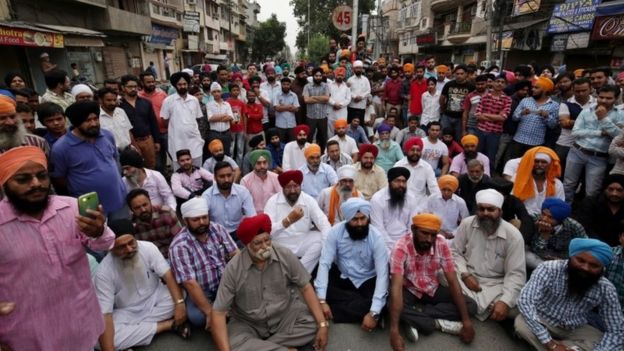
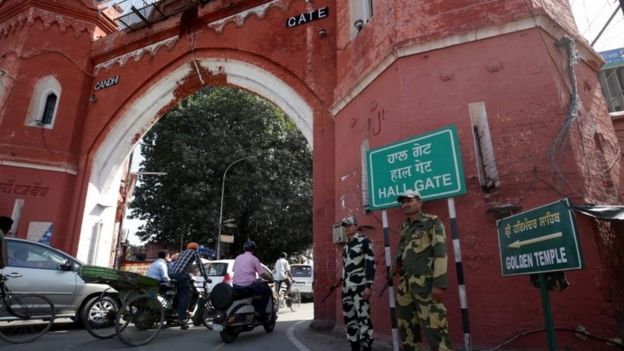
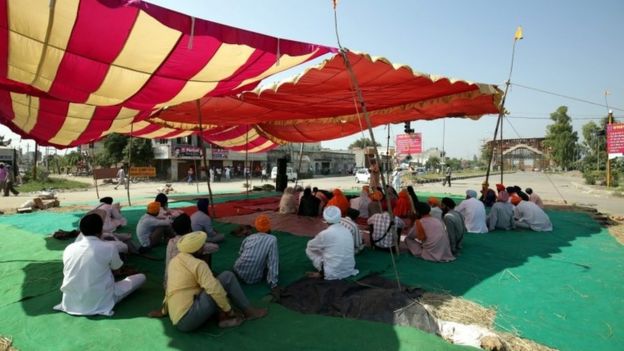
She claims the government stands discredited among the Sikh community because of its "failures" on "economic and social fronts".
Punjab is primarily an agrarian society, but its farmers are suffering.
Prices of seed and manure have shot up. Farms are becoming smaller and prices of farm produce have plummeted.
In fact, farmers who grow cotton, sugarcane and rice have been holding organised protests for the last two months.
Struggling farmers are taking their lives.
Farmer Balwinder Singh, who lived near Amritsar, committed suicide last month after he failed to get a good price for his paddy. He was the family's only breadwinner.
His teenage son Lovepreet Singh says he will not join his father's occupation after he completes his studies because "farming is a loss-making proposition today".
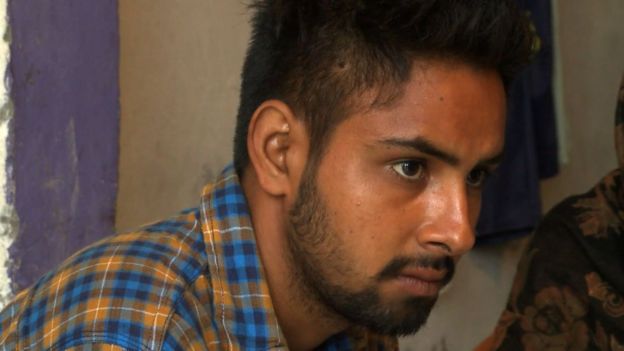
Also Sikh religious bodies, such as the SGPC and Akal Takht, are often accused of getting mired in politics.
Followers blame the ruling government for interfering in the affairs of these bodies. Many Sikhs believe that the pardon to Gurmeet Ram Rahim Singh was done apparently at the behest of the government, a charge it vehemently denies.
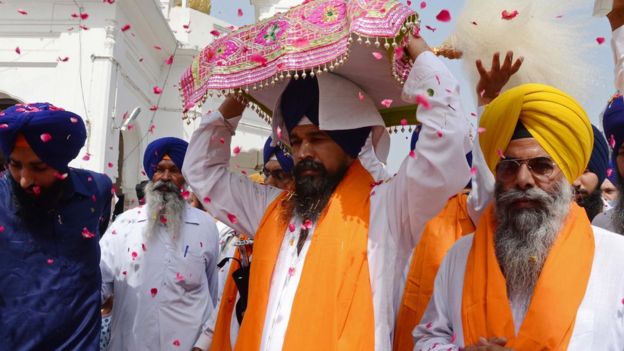
"The SGPC is doing the government's bidding and our biggest problem is the Akal Takht which has swung to the ruling Akali Dal," says Kewal Singh, a local religious leader.
Some also see the conflict as a "power struggle" between the Akali Dal political party on the one hand and the influential Sikh diaspora on the other.
Interestingly the state government has claimed that a "foreign hand" - apparently pointing to the community diaspora - was behind the desecration of the holy book.
Claims and counter-claims have only helped deepen the crisis within the Sikh bodies. And the cries for reform are getting louder.
Clearly, Punjab needs to reform its politics, its economy and its religious institutions to revive what was once one of India's leading states.


0 Comments:
Post a Comment
Subscribe to Post Comments [Atom]
<< Home